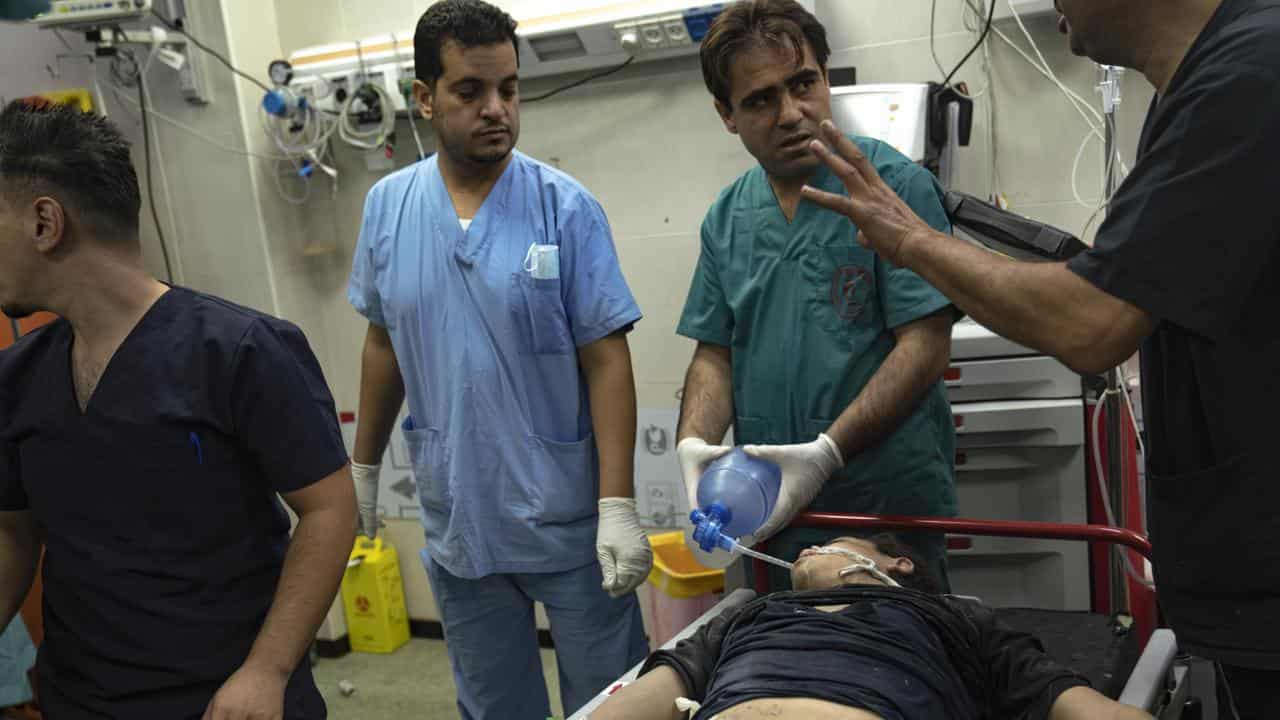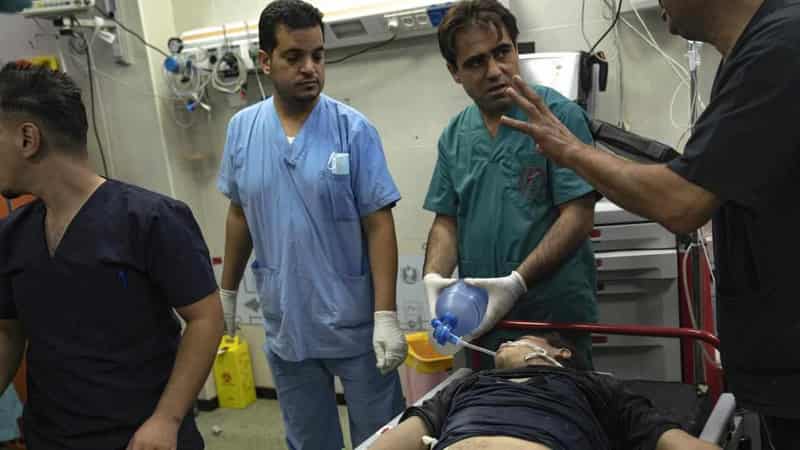
The World Health Organisation (WHO) says it needs urgent access to Gaza to deliver aid and medical supplies, as the UN agency warned of a long-term humanitarian crisis in the Palestinian enclave.
Dr Richard Brennan of the WHO's eastern Mediterranean office said the agency was meeting with "decision-makers" on Tuesday to open access to Gaza as soon as possible.
"We have aid south of Rafah and are waiting for the go ahead to get entry to Gaza," he said, referring to the Rafah crossing with Egypt, which was a vital artery before the fighting and is now a key route for desperately needed supplies into Gaza.
The comments come as Israel prepares a ground offensive aimed at eliminating Hamas militants in Gaza who killed 1300 people during a rampage through southern Israeli towns on October 7.
WHO said its supplies had been ready to go for three days, but teams had been unable to deliver it.
It said 2800 people have died and 11,000 have been injured in Gaza since Israeli air strikes started. About half of them were women and children.
The United Nations human rights office said on Tuesday that Israel's siege of Gaza and its evacuation order for the north of the enclave could amount to a forcible transfer of civilians and be in breach of international law.
Speaking to reporters in Geneva, Ravina Shamdasani, spokesperson for the UN human rights office, said Israel seemed to have made no effort to ensure the civilians temporarily evacuated in Gaza were provided with proper accommodation, as well as satisfactory conditions of hygiene, health, safety and nutrition.
Brennan said the WHO consistently appeals "that all parties to any conflict respect and adhere to international humanitarian law, as well as international human rights law".
There have been 115 attacks on healthcare facilities and the majority of hospitals in Gaza were not functioning, with water and electricity, as well as medical supplies, scarce, officials said.
The agency said disease outbreaks are a risk and concerns are growing about the 350,000 people in Gaza with chronic diseases like diabetes, who are also struggling to get access to healthcare.









